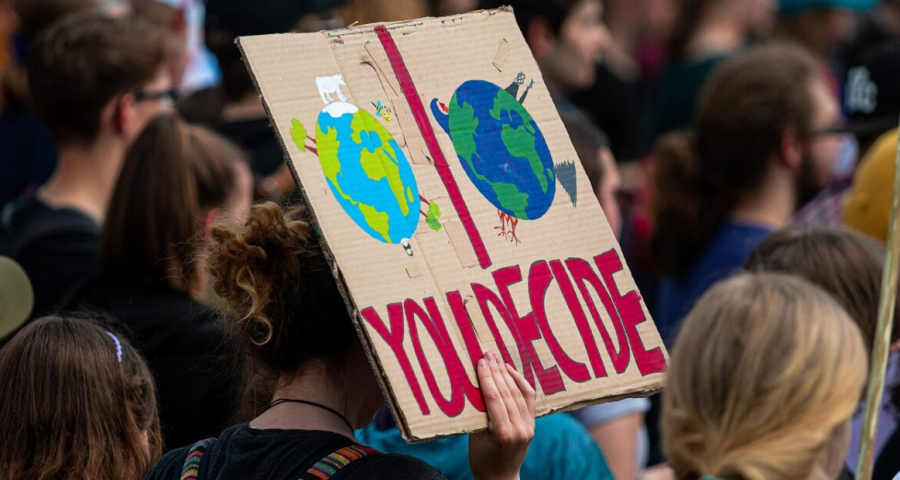Solutions to reduce greenhouses gas and adapt to changes in our climate, caused by human activity, are already within our grasp. This is the conclusion of the latest report by scientists of the Intergovernmental Panel on Climate Change, published on 20th March this year.
by Tamara Pastorelli
fonte: UWP
There are numerous solutions open to us, feasible, effective and most of all, available right now – says the IPCC – regarding the climate crisis we are now living, due to human influence.
“Intergrated climate action, effective and fair, will not only reduce the losses and damage to people and nature, but its benefits will be far-reaching”, said IPCC president, Hoesung Lee.
“The Synthesis Report highlights the urgency of taking more ambitious action, demonstrating that “if we act now, there is still a chance of a sustainable and liveable future for all”.
The Intergovernmental Panel on Climate Change (IPCC) is the body founded by United Nations in 1988 to provide regular scientific valuations on climate change to political leaders. In 2018, the IPCC identified the challenge to keep the level of warming at 1.5°C. This challenge has become even greater due to the continued increase in the emission of greenhouse gases. “The rate and impact of what has been done so far, and current plans, are insufficient to meet climate change”. Therefore, the choices that States will make in the next few years will play a crucial role in determining our future and that of the next generations.
Climate Justice for a fair and sustainable world
It is also a question of climate justice. The IPCC outlines the damage we have already experienced, are still experiencing, and will continue to experience, particularly affecting people and ecosystems who are the most vulnerable. “Climate justice is fundamental because those who have contributed the least to climate change but are the most affected is out of proportion”, said Aditi Mukherj, one of the 93 authors of the Synthesis Report. “Almost half the world’s population live in regions that are extremely vulnerable to climate change. In the last decade, the loss of life due to floods, droughts and storms are 15 times higher in areas that are most at risk”.
In this decade, it is essential to speed up our adaptation to climate change, in order to close the gap between where we are now and where we need to be. In the meantime, if we want to keep within the limit of 1.5°C above pre-industrial levels, we need to make deep and rapid cuts to emissions across all sectors. According to the report, emissions should and must be reduced by half by 2030, if we want to remain within the limit of 1.5°C warming.
Solutions?
According to what has emerged from the report, the solution lies in the choice of ‘sustainable development that is resilient to climate change, integrating measures of adaption to climate change with measures to reduce and prevent greenhouse gas emissions. For example, “Access to clean energy and technology improves health, especially that of women and children; low electrification with low carbon emission; riding a bicycle or taking public transport improves air quality, health and job opportunities and ensures greater equality. The economic benefits of improving air quality alone, are almost equal, if not greater than the cost of reducing and preventing emissions”. However, in order to be effective and socially acceptable, our choices “need to be rooted in a diversity of values, knowledge and vision of the world, scienctific, indigenous and local.
“The most significant gains in terms of wellbeing will derive from the priority given to reducing climate risk for low income and marginalised communities” including those living in temporary shelter”, says Christopher Trisos, one of the authors of the report.
Financing sustainable development
According to scientists, there is sufficient global capital to make rapid cuts in greenhouse emissions, if we remove existing barriers. The role of governments in removing these barriers, directing public finances and giving a clear signal to investors, is fundamental. But investors, central banks and financial regulating bodies can also do their part.
“Co-ordinated, political commitment, international cooperation, managing ecosystems and inclusive governance all play a part in fair and effective climate action – the report explains. If technology, know-how, adequate political measures and funds come together, every community will have the means to reduce or prevent high levels of carbon consumption. At the same time, significant investment in climate adaptation, will be able to prevent the growing risks, especially to groups and areas that are the most vulnerable”.
Climate, ecosystems and society are interconnected
The report continues “Effective and fair conservation of 30-50% of the Earth’s land, fresh water and oceans will significantly contribute to ensuring a healthy planet. Changes within the food, energy, transport, industry and building and land-use sectors, can all help to reduce emissions. And at the same time, facilitate a lifestyle of low carbon emission, improving the health and wellbeing of all.
“We live in a heterogeneous word in which every individual has different responsibilities, different opportunities to bring about change – says the president of IPCC Hoesung Lee – Whilst some can do a great amount, others will need support to manage change’.
To sum up, there is still hope, if we want it.
Further detail can be found on the site: www.ipcc.ch








